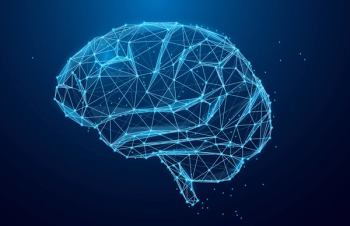
The Week in Review: June 19-23
From research updates on at-home ketamine use to the effects of comorbid depression and anxiety on insomnia treatment, here are highlights from the week in Psychiatric Times.
This week, Psychiatric Times® discussed a wide variety of psychiatric issues and industry updates, from research updates on at-home ketamine use to the effects of comorbid depression and anxiety on insomnia treatment. Here are some highlights from the week.
Self-Medicating: More Than Half of At-Home Ketamine Users Misuse the Treatment
All Points North (APN) released its 2023 Future of Mental Health: Ketamine Therapy Report, which examined opinions on and experiences with ketamine therapy, including at-home ketamine treatments.
Researchers surveyed 2000 adults and found that 64% of those taking ketamine said it helped with their mental health symptoms; however, 55% of all Americans and 58% of millennials who tried at-home ketamine therapy reported accidentally or purposefully using more than the recommended dose. Additionally 26% agree they would rather use ketamine than antidepressants or antianxiety medications.
Comorbid Depression and Anxiety Impacts Insomnia Treatment
New research finds that co-occurring depressive and anxiety symptoms could impact effectiveness of cognitive behavioral therapy for insomnia (CBTi).
Investigators conducted a single-arm clinical trial. A total of 280 community participants volunteered for screening, but only 194 participants met inclusion criteria of (1) insomnia criteria according to DSM-5; (2) Insomnia Severity Index (ISI) score of 8 or higher; (3) insomnia duration of <1 month; and (4) age of 18 years or older.
Pregnancy Complications, Neonatal Characteristics, and Bipolar Disorder in Offspring
There is some evidence that pre- and perinatal factors are associated with risk of bipolar disorder, including preterm birth. However, findings for other factors—including elective caesarean birth, small-for-gestational age (SGA), and small head circumference—are mixed.
The impact of pregnancy complications, such as gestational diabetes and preeclampsia, are similarly unclear. Previous studies have used obstetric complication scores, which does not permit inferences regarding specific individual risk factors.
Reflecting on Our Values: A Look at Medical School Graduation Rituals
Graduating from medical school is a joyous, celebratory ritual of passage. In recognition of their important achievement, graduates are awarded the title of “medical doctor.” It is a wonderous pause in the emerging careers of young physicians—and all graduates should be able to participate in it equally.
A talented, inquisitive fourth-year medical student mentee of mine, who is headed for psychiatry residency, recently told me about the “hooding ceremony” at her upcoming graduation. As she shared her experience, memories of my own daughter’s graduation from my and my husband’s alma mater came to mind.
See more recent coverage from Psychiatric Times
Do you have a comment on any of these or other articles? Have a good idea for an article and want to write? Interested in sharing your perspectives? Write to us at PTeditor@mmhgroup.com.
Newsletter
Receive trusted psychiatric news, expert analysis, and clinical insights — subscribe today to support your practice and your patients.







